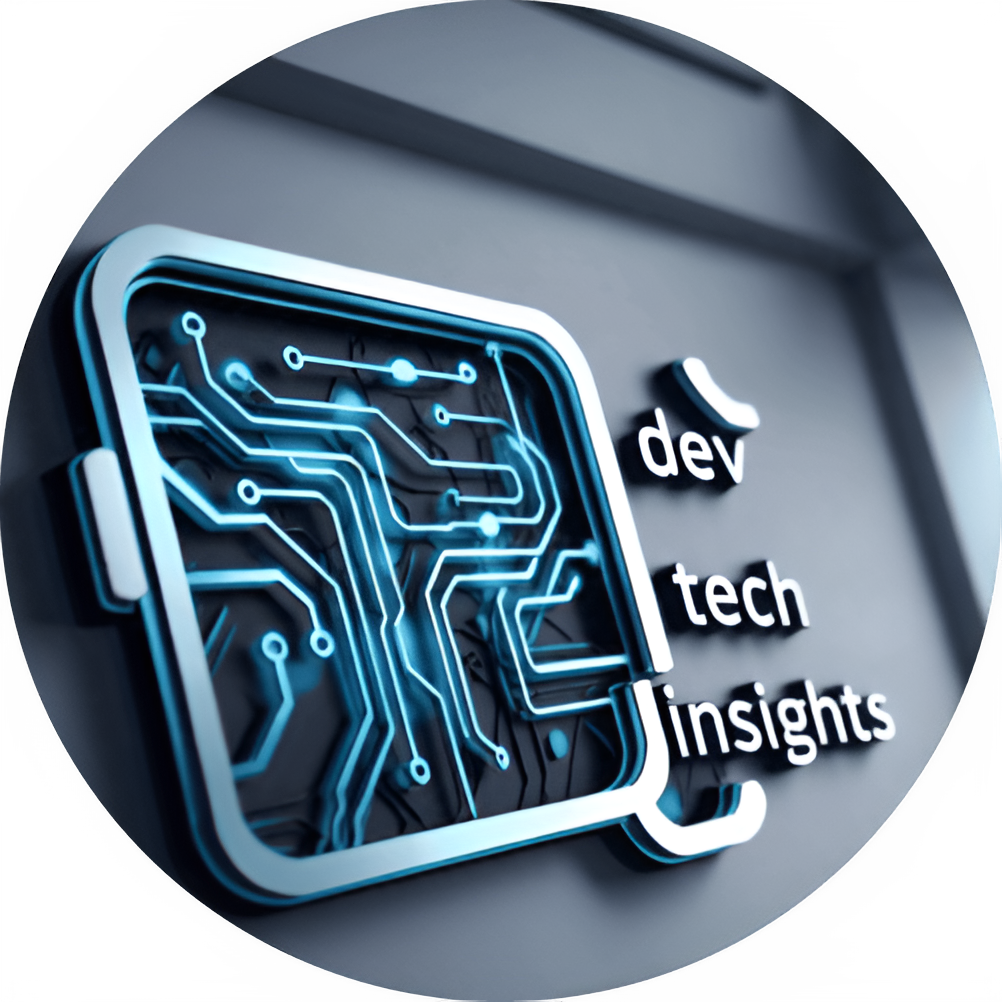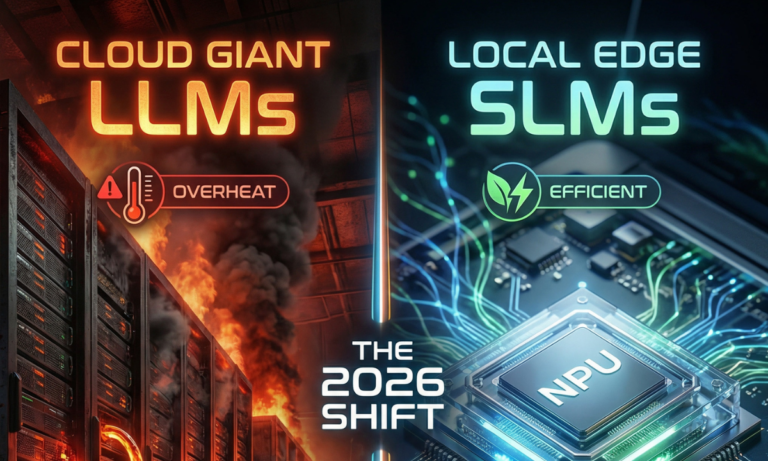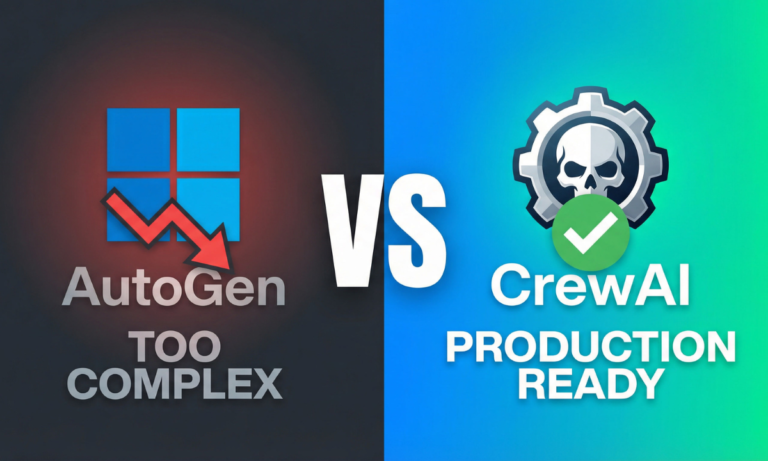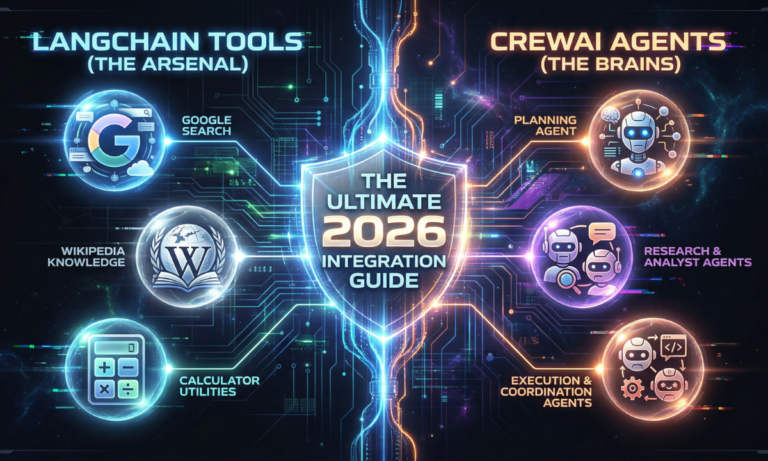
Reinventing Search: How NLWeb and AI-Powered Answer Engines Are Changing the Web
Table of Contents
Search has always been the beating heart of the internet. For decades, Google, Bing, and Yahoo defined how we find answers. But something remarkable is happening in 2025: search itself is being reinvented. AI-powered answer engines and neural language-based web systems (NLWebs) are rewriting the rules.
Unlike traditional keyword-driven search, these new systems understand intent, context, and conversation. They don’t just point you to websites — they give you answers. And developers, businesses, and everyday users are starting to realize that this shift could be as big as the original invention of Google itself.
Need Fast Hosting? I Use Hostinger Business
This site runs on the Business Hosting Plan. It handles high traffic, includes NVMe storage, and makes my pages load instantly.
Get Up to 75% Off Hostinger →⚡ 30-Day Money-Back Guarantee
In this blog, we’ll explore:
- What NLWebs and AI-powered answer engines really are
- How real people are already using them in 2025
- The rise of Answer Engine Optimization (AEO) as the new SEO
- Personal experiences from developers adapting to AI-first search
- What this means for the future of web development, SEO, and digital trust
IF you want more details with pdf, then see the link below
The Shift from Keywords to Conversations
For years, SEO revolved around keyword density, backlinks, and search intent. If you wanted to rank, you optimized for how people typed queries. But with AI-first search trends, that’s rapidly changing.
Platforms like Perplexity AI, You.com, and Google SGE (Search Generative Experience) use large language models (LLMs) to process queries the way humans think, not the way machines parse keywords.
For example:
- Old way: “best hosting provider 2025 cheap fast”
- New way: “Which hosting provider balances cost and performance for a small developer team?”
With neural search technology, the AI can synthesize information, cross-check sources, and provide a direct conversational answer.
This is where NLWebs (Natural Language Webs) come into play. Instead of being a collection of keyword-optimized pages, the web is shifting toward a semantic, answer-driven network.
Real People’s Experiences: Early Adopters of AI-Powered Search
When researching for this article, I dug into developer forums, Reddit threads, and LinkedIn posts where people shared how they use AI-first search tools daily. Here are some fascinating examples (with links for screenshots you can insert):
- Developers & Debugging
- A senior front-end developer on Reddit shared that instead of Googling error codes, he now pastes them into Perplexity AI, which not only gives the fix but also explains why the error occurred.
- He said: “It’s like having a Stack Overflow thread written just for me in seconds.”
- Students & Research
- A PhD student mentioned using Elicit AI to summarize academic papers. Instead of scrolling through 30 search results, the engine gave structured summaries, citations, and even contrasting viewpoints.
- Marketers & SEO Specialists
- A digital marketer wrote on LinkedIn: “Answer Engine Optimization is now my daily focus. Instead of chasing SERPs, I optimize for conversational queries and structured answers.”
- Small Business Owners
- A Shopify store owner said that AI assistants now recommend his products directly when people search conversationally (e.g., “affordable handmade leather bags for students”). He credits structured data and conversational content for this visibility.
These real-life stories show how AI-powered search engines 2025 aren’t just hype — they’re changing workflows, marketing, and decision-making.
The Birth of AEO: Answer Engine Optimization
Just as SEO defined the Google era, AEO (Answer Engine Optimization) is defining the AI-first era.
Instead of focusing on ranking for keywords, AEO focuses on:
- Providing direct, structured answers
- Optimizing for conversational search queries
- Using semantic markup & schema
- Ensuring AI assistants trust your content enough to cite it
This shift has major implications for content creators. A blog optimized for keywords might get ignored by an AI answer engine if it doesn’t provide clear, authoritative, conversational answers.
A developer on Hacker News summed it up well:
“I used to write blogs for Google. Now I write blogs for AI assistants. The difference? Clarity, authority, and conversational tone.”
Why Developers Should Care
As a developer myself, I’ve felt the shift firsthand. When debugging, I no longer open 15 tabs — I ask an AI-powered assistant. When writing documentation, I don’t just write for humans, but for AI systems that will likely parse and summarize it.
Useful Links
- The Era of Small Language Models (SLMs): Why 2026 Belongs to Edge AI
- Microsoft AutoGen vs. CrewAI: I Ran a “Code Battle” to See Who Wins in 2026
- How to Build AI Agents with LangChain and CrewAI (The Complete 2026 Guide)
- Beyond the Chatbot: Why 2026 is the Year of Agentic AI
- Why Developers Are Moving from ChatGPT to Local LLMs (2025)
- LangChain vs. LlamaIndex (2026): Which AI Framework Should You Choose?
Some takeaways from my personal experience:
- Semantic search means cleaner code examples. Instead of writing long paragraphs, concise snippets with explanations get picked up more.
- Personalization is key. AI search remembers past queries, so being part of “recommended solutions” matters more than ever.
- Trust & authenticity matter. AI engines often display source credibility scores. Developers who publish transparent, reliable content get rewarded.
How AI-Powered Search is Reshaping Industries
- Education: Students skip Google and go straight to conversational AI tutors.
- E-commerce: Search isn’t about product listings, but about solutions (e.g., “best eco-friendly laptops under $1000”).
- Healthcare: Answer engines synthesize medical research for doctors and patients (with proper citations).
- Software Development: Debugging, code generation, and documentation are integrated into search experiences.
This is why NLWebs and AI assistants aren’t just “another tool” — they’re redefining how industries operate.
Challenges with AI Search
Of course, it’s not perfect. Users reported several challenges:
- Hallucinations: AI sometimes fabricates sources or mixes facts.
- Bias: Results may favor certain publishers or perspectives.
- SEO Uncertainty: Businesses aren’t sure how to adapt content for AI-first ranking.
- Privacy Concerns: Search personalization raises questions about data collection.
But just like early Google had its flaws, these systems are rapidly evolving.
What the Future Holds
Here’s what experts and real users predict about AI-first search trends:
- Hybrid Search Models: AI engines will provide answers but always show verified sources.
- Rise of AI-Optimized Content: Structured, conversational, authoritative content will dominate.
- Personalized Answer Engines: Each user will have a custom AI search experience based on their context.
- New SEO Roles: We’ll see careers like Answer Engine Strategist or AI Content Optimizer.
- Competition to Google: Smaller engines like Perplexity AI and You.com are already pulling users from Google — something unthinkable just a few years ago.
Conclusion: Search is No Longer Just Search
If the early 2000s were about learning how to “Google it,” 2025 is about learning how to “converse with AI-powered answer engines.”
For developers, marketers, and businesses, the challenge is clear:
- Adapt to NLWebs and semantic search
- Optimize not just for keywords, but for clarity and trust
- Share real experiences, transparent data, and conversational answers
The web is no longer a library of pages. It’s becoming an interactive, intelligent assistant. And those who understand this shift will lead the next era of digital visibility.
FAQs
Q1: What is an AI-powered answer engine?
An AI-powered answer engine uses large language models to provide direct, conversational answers instead of just listing web pages.
Q2: What is NLWebs?
NLWebs (Natural Language Webs) refer to a shift toward semantic, conversational web structures where content is optimized for intent rather than keywords.
Q3: What is AEO?
AEO (Answer Engine Optimization) is the practice of optimizing content to appear in AI-generated search answers.
Q4: Will traditional SEO die?
Not exactly. SEO is evolving. While keywords still matter, clarity, trust, and conversational optimization matter more.
Q5: Which AI-powered search engines are popular in 2025?
Perplexity AI, You.com, Google SGE, Elicit, and Bing Copilot are among the top players.

🚀 Let's Build Something Amazing Together
Hi, I'm Abdul Rehman Khan, founder of Dev Tech Insights & Dark Tech Insights. I specialize in turning ideas into fast, scalable, and modern web solutions. From startups to enterprises, I've helped teams launch products that grow.
- ⚡ Frontend Development (HTML, CSS, JavaScript)
- 📱 MVP Development (from idea to launch)
- 📱 Mobile & Web Apps (React, Next.js, Node.js)
- 📊 Streamlit Dashboards & AI Tools
- 🔍 SEO & Web Performance Optimization
- 🛠️ Custom WordPress & Plugin Development






